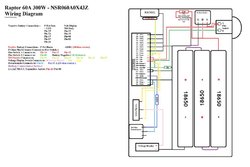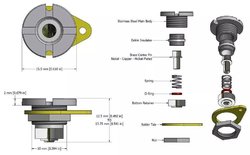Been looking at building a box mod, the aim being it takes two 18650's for increased battery life. It would be nice if it can fire up to 100 watts. The path I've chosen is the typical mosfet-n route as per the examples on modmakers.co.uk.
So that gives me the equivalent of a mech mod as in being fixed at the batteries voltage, however I was thinking, how about having the option for say 3.7 - 7.4 volts. I've looked around on here and other places but can't find any decent pointers on what direction to take. There are various DC-DC boards out there but they all carry small currents such as 10 amps or less.
Some thoughts I've got are:
1) DC-DC step down, use two 18650s stacked for this.
2) DC-DC step up, using two 18650s in parallel.
Has any one ever employed PWM for controlling the voltage?
At this point I'm really just fishing for ideas, preferably from someone who's already done it.
EDIT: I feel I must state I'm looking for a solution I can construct rather than buying one of the dna style boards.... its for fun
Cheers
So that gives me the equivalent of a mech mod as in being fixed at the batteries voltage, however I was thinking, how about having the option for say 3.7 - 7.4 volts. I've looked around on here and other places but can't find any decent pointers on what direction to take. There are various DC-DC boards out there but they all carry small currents such as 10 amps or less.
Some thoughts I've got are:
1) DC-DC step down, use two 18650s stacked for this.
2) DC-DC step up, using two 18650s in parallel.
Has any one ever employed PWM for controlling the voltage?
At this point I'm really just fishing for ideas, preferably from someone who's already done it.
EDIT: I feel I must state I'm looking for a solution I can construct rather than buying one of the dna style boards.... its for fun

Cheers















